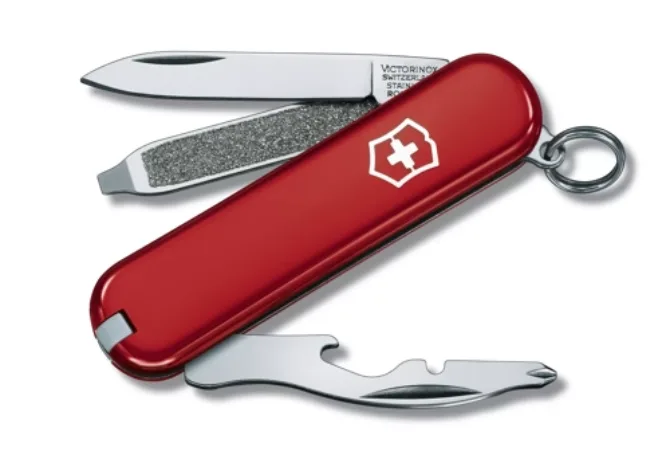
Exercises Expose Crisis Team Weaknesses and Strengths
Your organization has carefully constructed a crisis communications plan, identified a crisis team leader and undergone intensive media training. If you are fortunate enough to avoid an actual crisis, it might be timely to pretend you have one.
Crisis simulations are an excellent way to test your crisis preparation, uncovering weaknesses and discovering strengths. Most important, a simulated crisis makes a crisis plan come to life.
Competent crisis communications plans start with an issue audit to identify an organization’s risks and vulnerabilities. Those risks and vulnerabilities are then rendered as crisis scenarios, forming the backbone of the crisis communications plan. Crisis scenarios enable a crisis team to wrestle with specific crisis situations that pose unique challenges.
Crisis teamwork is an essential part of effective crisis response. That’s where crisis simulations can play a vital role. It takes one kind of teamwork to identify necessary actions for a specific crisis scenario. It’s takes another kind of teamwork to manage the stress of actual crisis response. The simulated crisis provides a training ground for teamwork under stress.
Discovering Crisis Plan Weaknesses and Strengths
Crisis simulations can expose minor oversights, such as war rooms with inadequate facilities, and major omissions, such as the absence of useful material that could have been prepared in advance for immediate media distribution. Most of all, simulated crisis training gives crisis teams a chance to perform by tapping go-to resources, drafting key messages, responding to media inquiries and communicating with internal and external audiences.
The most tangible and valuable benefit from crisis simulations is underscoring the importance of crisis teamwork. That teamwork should extend beyond the crisis stress test to continuing active participation to ensure the crisis plan remains current and competent.
Crisis scenarios provide the best skeleton for crisis plans. Crisis teams are the arms, legs and voices of crisis response.
There are multiple ways to stage crisis simulations. The simplest is a tabletop exercise in which crisis team members meet in a conference room to walk through crisis response steps for a specific scenario. A facilitator typically leads the exercise and moderates the follow-up discussion to identify weaknesses and successes. Tabletop exercises work best on crisis scenarios such as financial misconduct or cyber-hacking, which don’t have much physicality.
Crisis scenarios such as environmental or active-shooter incidents require a more full-blown crisis exercise that includes how and where to post the crisis team and the mechanics of working with emergency responders and law enforcement. Crises that explode into public view cause challenges ranging from intense media interest to interacting with affected neighbors who may be live-streaming events. A simulated crisis exercise is also an opportunity to gauge coordination with local emergency responders and identify ways to improve coordination. For example, an industrial facility can supply a list of chemicals it uses to local hospital emergency rooms and inform fire departments how to quell certain kinds of fires safely.
Testing Crisis Decision-Making
A key component of any simulated crisis training is engaging top management and legal counsel to approve crisis team decisions, including key messages. Crisis communications plans should lay out the roles of top management and legal counsel in approving crisis responses from actions to statements. Thinking about this kind of stressful decision-making in the abstract of a crisis plan is quite different from coping with it in a simulated or actual crisis situation.
Time is the enemy of any crisis response. A simulated crisis enables a crisis team and organization managers to experience that pressure in a real-time setting. Experience shows this can be a cathartic experience for managers and team members that leads to qualitatively improved crisis communications plans.
Effective crisis response doesn’t rely on canned statements that rarely anticipate the dimensions of an actual crisis. Crisis simulations become proving grounds for staff members tasked with writing and delivering crisis messaging. Stress-test media training is essential preparation for this task. Simulated crisis experiences validate the training and point to needed improvements.
Crisis Simulations Offer Team-Building Opportunity
It’s possible, and even advisable, to see crisis simulations as team-building exercises. In addition to testing teamwork under pressure, a simulated crisis can reveal the skills and confidence of individual team members. That knowledge can influence choices for spokespersons and crisis team membership. Some people have the disposition to handle crisis and some people don’t. It’s best to know who’s who before a real crisis response is required.
Crisis simulations require planning and preparation. They cost money and create significant time demands on an organization. Simulations can be worth the expense if organized well and led by experienced professional facilitators. That’s especially true for crisis simulations involving third-party regulatory, public health, litigation and criminal scenarios.
In an age when someone with a smartphone can spark a crisis, it pays to be prepared. Crisis plans are a must-have for almost every organization – and a good many high-profile individuals. No matter the quality of a crisis plan, it’s actual worth is in the ability to implement the plan.
Crisis scenarios provide the best skeleton for crisis plans. Crisis teams are the arms, legs and voices of crisis response. Like a good pair of running shoes, you never know how a crisis team will perform until you try them on and go for a run. A simulated crisis exercise is the perfect course for a vigorous run.




